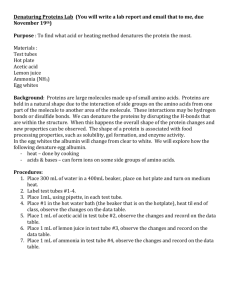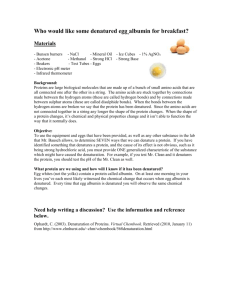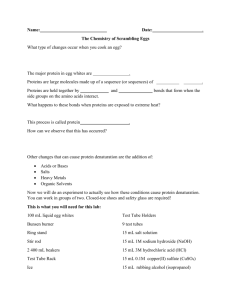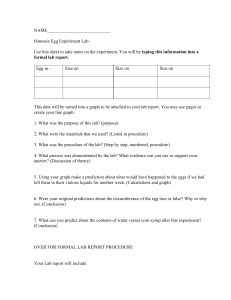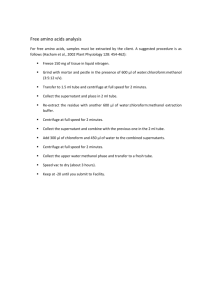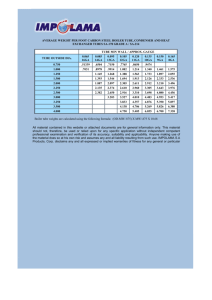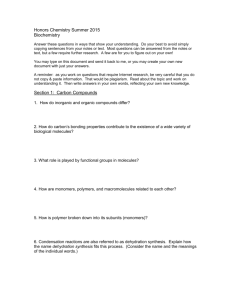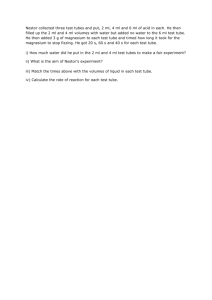Denaturing Proteins
advertisement
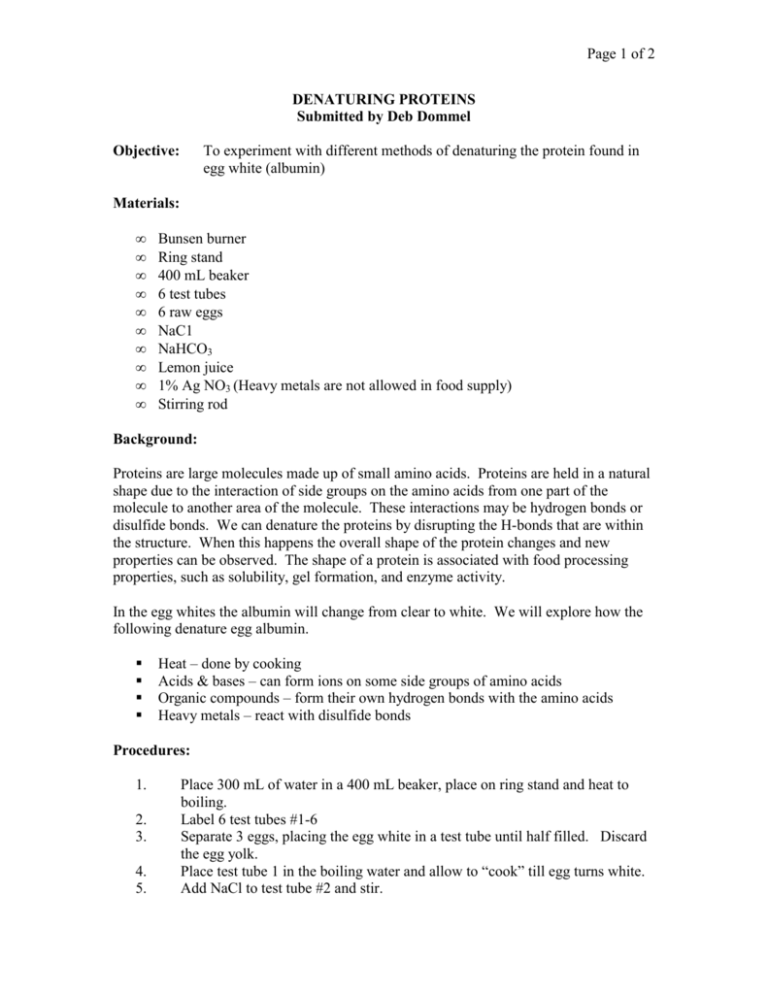
Page 1 of 2 DENATURING PROTEINS Submitted by Deb Dommel Objective: To experiment with different methods of denaturing the protein found in egg white (albumin) Materials: • • • • • • • • • • Bunsen burner Ring stand 400 mL beaker 6 test tubes 6 raw eggs NaC1 NaHCO3 Lemon juice 1% Ag NO3 (Heavy metals are not allowed in food supply) Stirring rod Background: Proteins are large molecules made up of small amino acids. Proteins are held in a natural shape due to the interaction of side groups on the amino acids from one part of the molecule to another area of the molecule. These interactions may be hydrogen bonds or disulfide bonds. We can denature the proteins by disrupting the H-bonds that are within the structure. When this happens the overall shape of the protein changes and new properties can be observed. The shape of a protein is associated with food processing properties, such as solubility, gel formation, and enzyme activity. In the egg whites the albumin will change from clear to white. We will explore how the following denature egg albumin. ! ! ! ! Heat – done by cooking Acids & bases – can form ions on some side groups of amino acids Organic compounds – form their own hydrogen bonds with the amino acids Heavy metals – react with disulfide bonds Procedures: 1. 2. 3. 4. 5. Place 300 mL of water in a 400 mL beaker, place on ring stand and heat to boiling. Label 6 test tubes #1-6 Separate 3 eggs, placing the egg white in a test tube until half filled. Discard the egg yolk. Place test tube 1 in the boiling water and allow to “cook” till egg turns white. Add NaCl to test tube #2 and stir. Page 2 of 2 6. 7. 8. 9. 10. Add NaHCO3 to test tube #3 and stir. Add lemon juice to test tube #4 and stir. Add rubbing alcohol to test tube #5 and stir. Add 1% AgNO3 to test tube #6. Record observations on the table below: Data Table Test Tube 1 2 3 4 5 6 Added Observations Heat NaCl – Ionic Compound NaHCO – Base Lemon juice – Acid Rubbing alcohol organic liquid AgNO3 – heavy Metal Post Lab Questions: 1. Which method appeared to have the most dramatic denaturing affect on egg albumin? Why do you think this method had a greater affect? 2. Of the methods you tested, which would be more likely to be used in the food industry?
